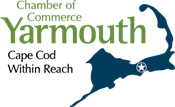By Stephanie Murray
STATE HOUSE NEWS SERVICE
Members of a state travel and tourism commission are eyeing the international tourism market while fretting over the outcome of annual state budget deliberations on Beacon Hill.
Massachusetts Office of Travel and Tourism (MOTT) Executive Director Francois-Laurent Nivaud said the office is working to determine which tourism markets it can tackle and how to do so effectively. Though international tourism is not the state’s largest market, it generates more revenue than domestic tourism, he said at a meeting of the state Advisory Commission on Travel and Tourism
“The international is not the biggest market but that’s where the margin is the greatest. So I think that we do invest international because we believe that the returns are greater than they are on the domestic,” Nivaud said. “That doesn’t mean we’re closing the door on the domestic at all, it’s just that we think we think that there is a better return back.”
State international travel data is not yet available for 2016, but commission research director Tony D’Agostino said preliminary numbers show Massachusetts may not have been as impacted by a nationwide dip in international tourism last fall.
Total overseas visits to the United States dropped 1.5 percent from 2015 to 2016. Visits from Canada dropped 8.9 percent, Western Europe dropped 6.2 percent, South America dropped 6 percent and the United Kingdom dropped 4.8 percent. Visits from the People’s Republic of China grew 13.5 percent, though D’Agostino said that growth is lower than previous years.
“If we look at international passenger arrivals data through Logan International Airport, visits are up about 20 percent. But keep in mind, these are U.S. citizens going overseas and coming back, as well as overseas citizens coming here and going back,” D’Agostino said. “It is an indication that perhaps visitation to Massachusetts is not being impacted as much as it is to the U.S. … Fingers crossed.”
D’Agostino said the decline in Canadian tourism can be attributed to a decline in the value of the Canadian dollar. Because Canadian tourists often drive across the border to the United States and make travel plans on short notice, tourism trends closely mirror the value of the Canadian dollar. By comparison, tourism from the United Kingdom took a longer time to decline when the value of the British Pound dropped because those faraway travelers make their plans further in advance. On Monday, the Canadian dollar was equal to 76 cents and the British pound was worth $1.27.
Chairman Thomas Kershaw said he’s hoping to “gain traction” with state officials to protect the MOTT appropriation, and asked commission members to think about what they hope to see as the organization’s priorities. Kershaw said the commission is waiting to learn its appropriation for the coming fiscal year, which begins July 1. He pointed to a $439 million shortfall in expected tax collections for the 2017 fiscal year which ends June 30.
“We don’t know until the conference committee resolves what they’re going to send to the governor, and then we don’t know until we find out what the governor has vetoed, and then we don’t know until, you know, the House and Senate override the vetoes. So we really don’t know, usually, until well into July and can tell what’s going to happen. Then we’re also subject to 9C cuts which just happened last year, where $3 million was taken out of our appropriation. So it’s very difficult to have these half-a-billion-dollar deficits or shortfalls of revenue over expenses,” Kershaw said. “There’s nothing they can do to raise that money and they’ve got got balance the budget.”
Assistant Secretary for Business Development and International Trade Nam Pham pledged his commitment to small businesses and said Gov. Charlie Baker and Secretary of Housing and Economic Development Jay Ash “are paying attention” to the connection between local businesses and tourism.
“The business of travel and tourism is a big part of a lot of our small businesses in different towns so we will put together a small business agenda and in that agenda there will be something about tourism,” Pham said.
Members of the Consulate General of France attended the meeting to give an update on a Lafayette Trail project that traces the farewell tour of the longest-surviving Revolutionary War hero Gen. Lafayette when he passed through Massachusetts in the 1800s.
Julien Icher, who designed an online map of Lafayette’s tour, echoed Pham’s support for small businesses. Icher said he hopes the trail will have a positive impact on small businesses by increasing the number of tourists who don’t just stay in Boston, but follow the Lafayette route out to Western Massachusetts.
Icher said he hopes to see Massachusetts as the “leading arm” to revitalize and share that history ahead of the American Friends of Lafayette bicentennial celebration in 2024. In Western Massachusetts, a stretch of Route 143 from Hinsdale to Worthington is already known as the Lafayette Trail.
The meeting also included a presentation from Elizabeth Giannini of the Franklin Regional Council of Governments about the organization’s marketing strategy for the Scenic Byways of Western Massachusetts.























